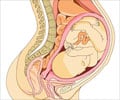The number of abortions carried out in Spain has more than doubled in the 10 years to 2007, the government said Tuesday.
In 1998, a total of 53,847 abortions were performed, compared with 112,138 last year, the health ministry said.It said the rate was highest among women aged between 20 and 24, followed by those aged 25 to 29, according to study.
Equality Minister Bibiana Aido said the figures, which also indicate that abortions were up more than 10 percent in 2007 over 2006, showed that a reform of the law on abortions was needed.
Spain’s Socialist government said in September it plans to introduce a new law that will offer greater legal protection for women who wish to have an abortion and doctors who carry out the procedure.
Spain decriminalised abortion in 1985 but only for certain cases: up to 12 weeks of pregnancy after a rape; up to 22 weeks in the case of malformation of the foetus; and at any point if the pregnancy represents a threat to the physical or mental health of the woman.
The majority of abortions in Spain take place in private clinics and are justified on the grounds that the pregnancy posed a "psychological risk" for the health of the woman.
Advertisement
SRM













